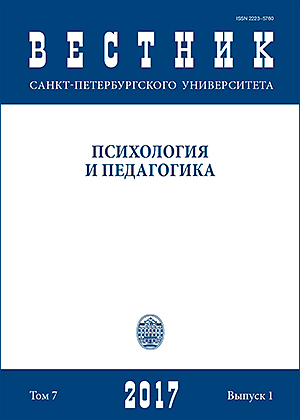Генеративность и ценностные ориентации в разные периоды взрослости
DOI:
https://doi.org/10.21638/11701/spbu16.2017.106Аннотация
В исследовании рассматривались отношения генеративности и ценностных ориентаций в периоды ранней, средней и поздней взрослости (23–32 года, 34–41 год и 44–57 лет). Приняли участие 133 респондента (67 мужчин и 66 женщин). Выявлено, что генеративная направленность и частота генеративных действий сильно интегрированы с ценностными ориентациями в период ранней взрослости. Ценность «доброта» связана с генеративностью во всех периодах взрослости. Показано, что особенности генеративности связаны с ценностными ориентациями во всех периодах взрослости.
Ключевые слова:
генеративность, ценностные ориентации, ранняя взрослость, средняя взрослость, поздняя взрослость
Скачивания
Библиографические ссылки
Литература
References
Загрузки
Опубликован
Как цитировать
Выпуск
Раздел
Лицензия
Статьи журнала «Вестник Санкт-Петербургского университета. Психология» находятся в открытом доступе и распространяются в соответствии с условиями Лицензионного Договора с Санкт-Петербургским государственным университетом, который бесплатно предоставляет авторам неограниченное распространение и самостоятельное архивирование.




